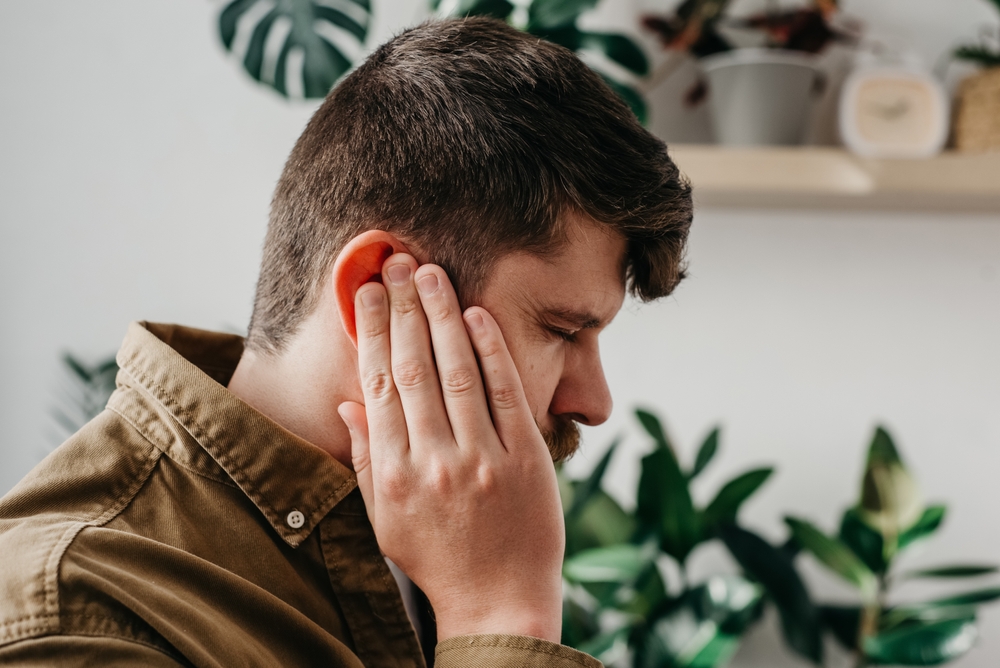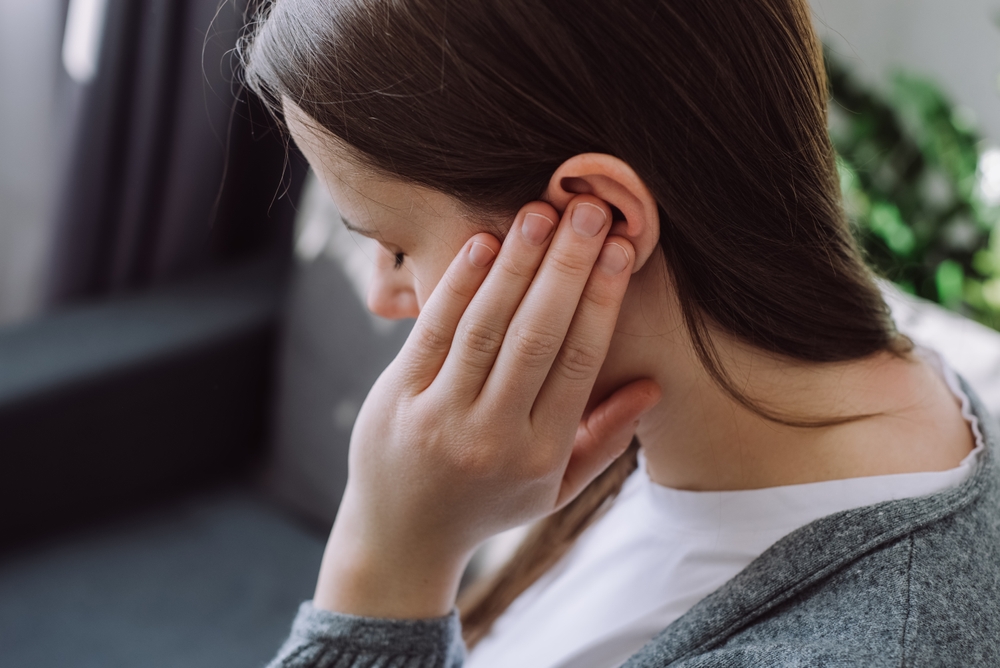Thump-whump. That’s weird. Thump-whump. Is that… is that normal? You just laid down to bed, turned out the lights, and now you can hear the rhythmic thumping of your heart in your ears. It’s a sound you never noticed before now, so it understandably makes you a little nervous. There’s a name for this sound: pulsatile tinnitus.
Unlike some other forms of tinnitus, in which you hear a sound (usually buzzing or humming) and the source of the sound is unclear, pulsatile tinnitus has a physiological source. And, in most cases, it’s nothing to panic about. But it’s also not a great idea to totally ignore your pulsatile tinnitus, especially if it doesn’t go away on its own within a few weeks or so.
What is pulsatile tinnitus?
When you hear that thump-whump in your ear, it’s because you’re experiencing pulsatile tinnitus. In most cases, this is caused by irregular blood flow in one of the blood vessels around your ear. (There are several blood vessels around the ear which could be the culprit.) What you’re really hearing is the blood whooshing through an artery or vein, and that whoosh happens in time with your heartbeat.
In most cases, though, pulsatile tinnitus is temporary. It’ll go away on its own. It might be most noticeable when other things are quiet or when you’ve just engaged in some vigorous exercise. If your pulsatile tinnitus sticks around for a while–say, longer than three weeks or so–that might be a reason to believe there are other underlying causes.
What can cause pulsatile tinnitus?
Pulsatile tinnitus is the result of turbulent blood flow through the arteries or veins around your ears. That seems simple enough, right? But the underlying causes of pulsatile tinnitus can be a little more intricate:
- Hypertension: High blood pressure (known medically as hypertension) is one of the most common causes of pulsatile tinnitus. That might feel like a relief, at first. But persistent high blood pressure can be a serious condition, and you should definitely talk to your doctor about healthy ways to manage this condition.
- Hearing loss: In many cases, pulsatile tinnitus can be a symptom of conductive hearing loss. These are the types of hearing losses that are typically caused by obstructions in the ear (often, that obstruction is fluid or inflammation; ear infections are the most common examples). Any blockages of the ear tend to make internal sounds louder. That’s why you can hear the thump-whump of your heart a little more potently than normal.
- Blood vessel disorders: There are a wide number of disorders that can cause your blood vessels to become malformed in some way, and this, in turn, can cause pulsatile tinnitus. Treatment of these blood disorders will vary depending on the disorder in question, so that’s something you’ll definitely want to talk over with a specialist.
- Carotid artery disease: Just as the accumulation of fatty plaque can cause heart disease, the same issue can cause carotid artery disease. Pulsatile tinnitus can be a kind of early warning sign in those cases, and it’s usually something that a specialist will check for.
Pulsatile tinnitus is usually temporary
Pulsatile tinnitus is most often temporary. You might get a rather severe ear infection, for example, and that infection could cause conductive hearing loss which, in turn, creates your pulsatile tinnitus. Still, if the symptoms linger, if the thump-whump is keeping you up at night, it might be worth scheduling an appointment.
And if the problem ends up being hearing related, a hearing specialist will be able to provide specific treatments designed to help mitigate your symptoms. For some people, pulsatile tinnitus will have no discernible cause–so learning how to manage the sounds and the possible distraction and discomfort the thump-whump may cause will be the best way forward.



